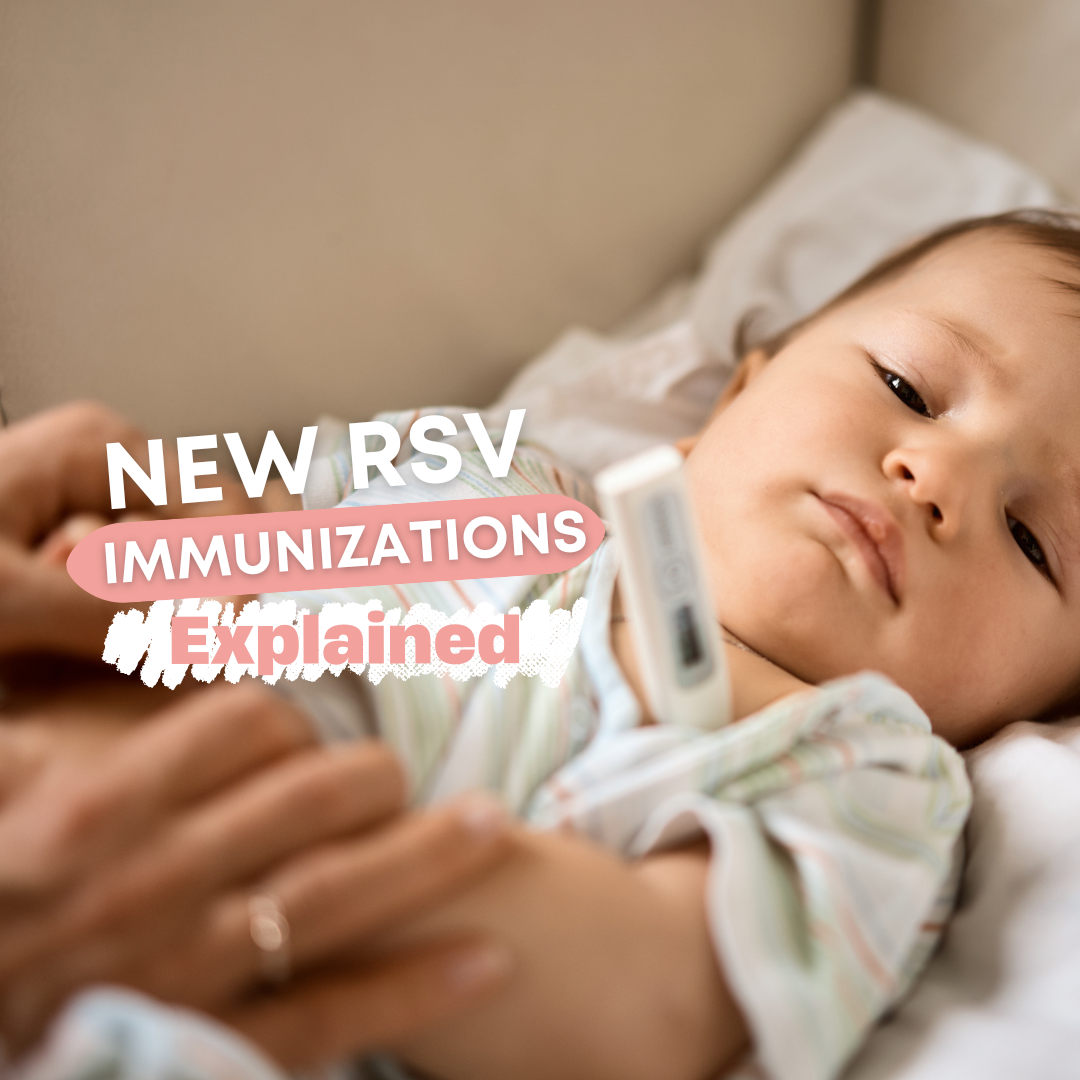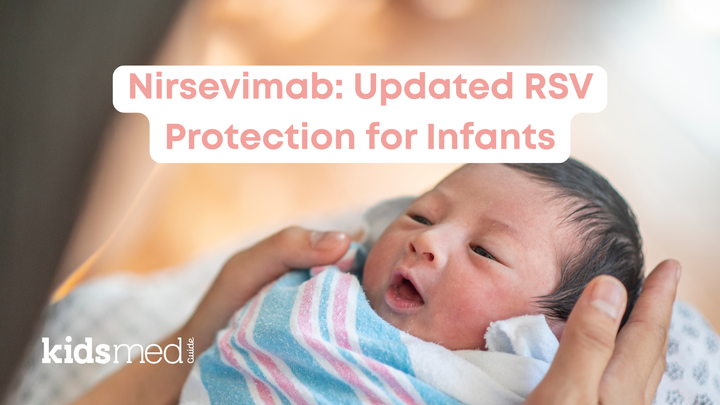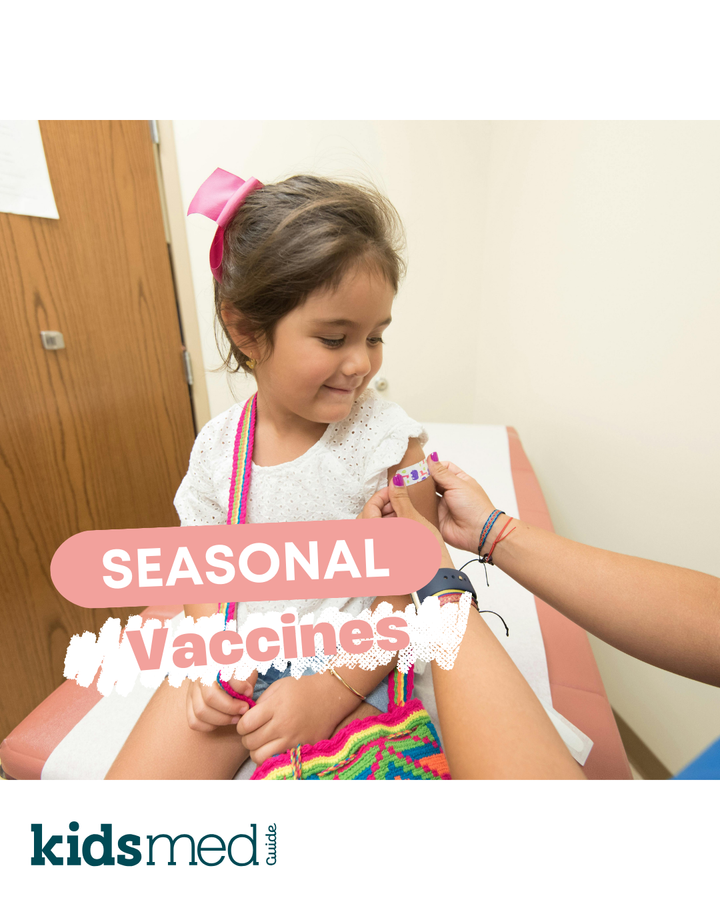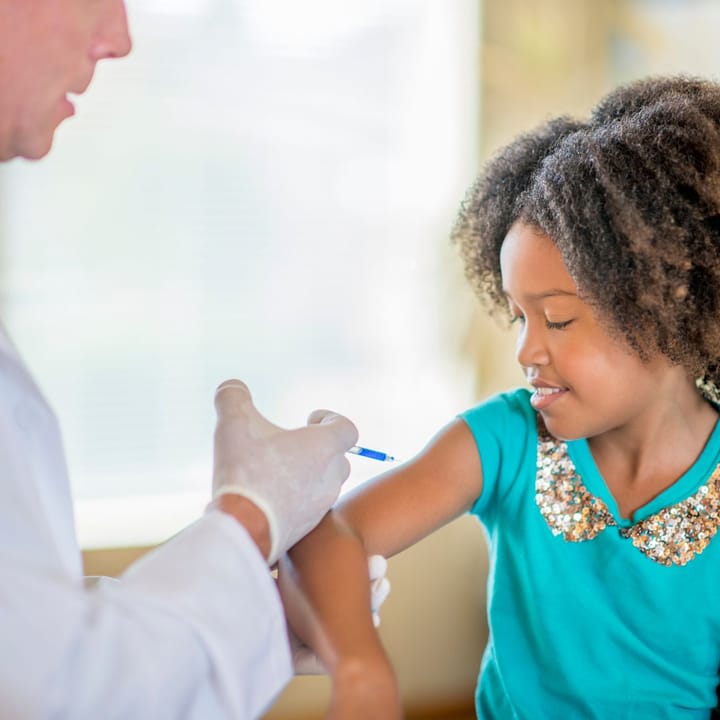What to Know About the New RSV Immunizations

Respiratory Syncytial Virus (RSV) activity in the United States (and multiple other respiratory viruses) is elevated! 'Tis the season. Babies and toddlers are at risk of contracting RSV, flu, parainfluenza, COVID-19, and many other viral respiratory illnesses that circulate during the winter months.
In 2023, my 15-month-old tested positive for RSV and Covid at the same time. That double-whammy landed us in urgent care twice. Also, it made us the proud new owners of a nebulizer machine and an amoxicillin prescription for a consequent ear infection.
There's only so much you can do to prevent respiratory infections, especially if your child attends daycare, has older siblings, or is a citizen of the world. Fortunately, newly approved RSV immunizations have demonstrated a significant ability to reduce the incidence of illness! Although these immunizations were unavailable when my three kids were babies, I would have chosen to immunize them if they had been.
What is RSV?
RSV is a common virus that can cause serious breathing problems in babies, especially those under 6 months old. Check out our Ultimate RSV Guide for more background! RSV infection is one of the main reasons infants end up at the doctor or in the hospital, with up to 80,000 babies hospitalized each year and over 2 million doctor's visits clocked annually.
How can you Prevent RSV?
The good news is that we now have ways to protect babies from severe RSV:
Nirsevimab (Beyfortus®)
This is a new type of protection for babies. It's recommended for:
- All infants during their first RSV season (typically from October to March).
- Some high-risk children during their second RSV season.
Good to know:
- Nirsevimab is very effective. Studies show it can reduce RSV hospitalizations by up to 90% in babies.
- It's usually given as a single shot, ideally before or early in the RSV season (October through March in most of the U.S.)
- Side effects are usually mild, like pain or redness where the shot was given.
Nirsevimab works differently from regular vaccines. It gives babies ready-made antibodies to fight RSV, protecting them for about 5 months. RSV antibodies are little defenders specifically built to recognize and attack the RSV virus, preventing or lessening the severity of an infection.
Even though protection from the shot only lasts about five months, it is effective because RSV activity follows a seasonal pattern. Babies are at highest risk in the first year of life, particularly in the first six months. Once immunity starts to wear off, RSV activity will be low, and babies will have aged out of the highest-risk group.
Maternal RSV Vaccine (Abrysvo®):
If you're pregnant, you might be able to get an RSV vaccine between 32-36 weeks of pregnancy. The vaccine (RSVpreF or Abrysvo®) helps protect your baby from birth through their first RSV season.
- If you got the RSV vaccine while pregnant, your baby probably won't need the nirsevimab shot.
- Only one maternal RSV vaccine is indicated per lifetime of the pregnant person.
Talk with your OB/GYN provider and pediatrician. This could be a good option for parents who are more comfortable immunizing themselves rather than their infant or for parents who want protection against RSV from the moment of delivery (antibodies circulate before the baby is born!)
In Summary
These immunizations (Beyfortus® and Abrysvo®) are new tools to keep babies safe from RSV. Experts recommend them to protect babies and high-risk toddlers during their most vulnerable months. When you have a young baby during RSV season, continue to employ good hand washing and hygiene, and avoid crowded areas or sick people. But also consider immunizing your child to reduce the risk of serious illness.
Talk to your pediatrician about which option is best for your baby. They can help you choose based on your child's age and risk factors.
The following references were used to compile this information:
CDC. (2024, December 2). RSV Immunization Guidance for Infants and Young Children. Respiratory Syncytial Virus Infection (RSV). https://www.cdc.gov/rsv/hcp/vaccine-clinical-guidance/infants-young-children.html
Kampmann, B., Madhi, S. A., Munjal, I., Simões, E. A. F., Pahud, B. A., Llapur, C., Baker, J., Marc, G. P., Radley, D., Shittu, E., Glanternik, J., Snaggs, H., Baber, J., Zachariah, P., Barnabas, S. L., Fausett, M., Adam, T., Perreras, N., Houten, M. A. V., … Gurtman, A. (2023). Bivalent Prefusion F Vaccine in Pregnancy to Prevent RSV Illness in Infants. New England Journal of Medicine, 388(16), 1451–1464. https://doi.org/10.1056/NEJMoa2216480
Muller, W. J., Madhi, S. A., Nuñez, B. S., Cots, M. B., Bosheva, M., Dagan, R., Hammitt, L. L., Llapur, C. J., Novoa, J. M., Llorens, X. S., Grenham, A., Kelly, E. J., Mankad, V. S., Shroff, M., Takas, T., Leach, A., & Villafana, T. (2023). Nirsevimab for Prevention of RSV in Term and Late-Preterm Infants. New England Journal of Medicine, 388(16), 1533–1534. https://doi.org/10.1056/NEJMc2214773
New Monoclonal Antibody and Vaccine Can Protect Kids from RSV. (n.d.). Yale Medicine. Retrieved January 9, 2025, from https://www.yalemedicine.org/news/new-rsv-monoclonal-antibody-vaccine-for-kids
Philadelphia, T. C. H. of. (n.d.). Respiratory Syncytial Virus (RSV): The Disease, Vaccines & Monoclonal Antibody | Children’s Hospital of Philadelphia. Retrieved January 9, 2025, from https://www.chop.edu/vaccine-education-center/vaccine-details/rsv-vaccine-monoclonal-antibody
RSV Vaccine for Babies and Children: What To Know. (n.d.). Cleveland Clinic. Retrieved January 9, 2025, from https://health.clevelandclinic.org/rsv-vaccine-kids
See, K. C. (2023). Vaccination for Respiratory Syncytial Virus: A Narrative Review and Primer for Clinicians. Vaccines, 11(12), 1809. https://doi.org/10.3390/vaccines11121809



